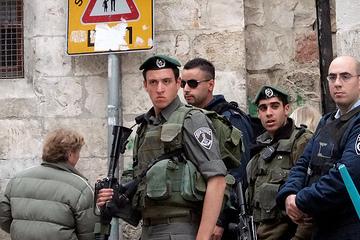I WAS WARNED. Then, I was treated to fits of Jewish hand wringing in the classical style. But mainly I was warned.
The fuss was caused whenever Israelis heard I was traveling to the West Bank on Palestinian buses to interview Palestinians. White-hot fears wrapped themselves around lurid fantasies. I would be reviled, waylaid, made to regret my ecumenical notions about Palestinians.
